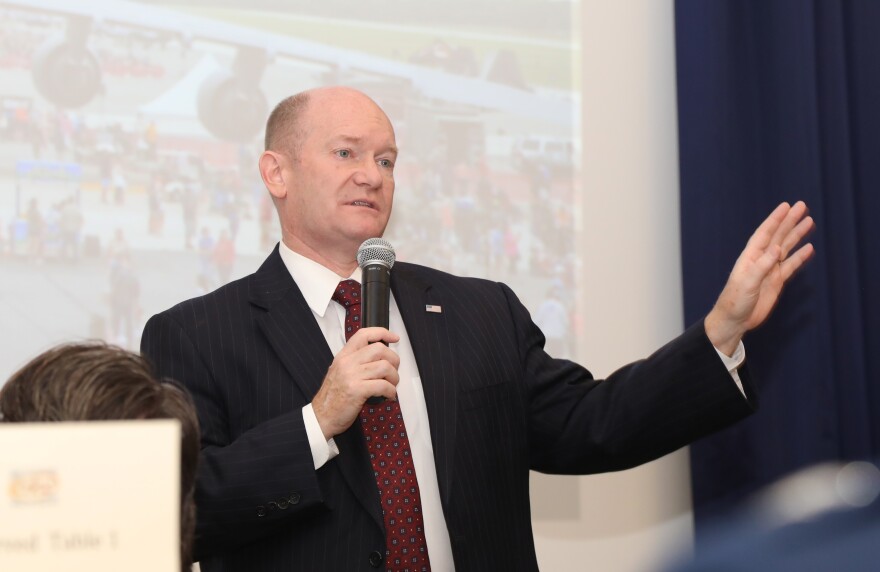Sen. Chris Coons is one of the 22 senators negotiating a bipartisan infrastructure deal.
He’s pursuing a bipartisan deal in a deeply divided era.
The $1.2 trillion bill would make big investments into transportation, broadband coverage and upgrading outdated power infrastructure.
Coons says you might notice more streets getting repaired, fewer brownouts and better cell service driving up and down the state.
The bill also includes funds for greater cybersecurity offense and defense. Coons says with all of the recent hacks on the military, government and companies, defending our country's new infrastructure will be important into the future.
But the deal doesn’t include other parts of Biden’s goal, including investments in education, child care and elder care. Those priorities are heading through a process called reconciliation, which allows Democrats to pass it without any Republican support.
Coons says this negotiation is all part of the process of crafting a bill that can make it through the Senate.
“It will not turn out exactly the way the president described it,” he said. “He didn’t send a bill to the Senate — he described a policy agenda and said you guys are senators, you figure it out and I'm here to negotiate with you. So far, I think it’s gone remarkably well given how incredibly divided we are in the Senate and within our own parties.”
He adds an infrastructure bill like this needs bipartisan support — the reconciliation process doesn’t permit any new projects or actual legislating.
Coons says the next few weeks will be very busy, as this infrastructure deal is close to being introduced alongside Biden’s corresponding reconciliation bill.
But Senate Democrats continue to face roadblocks on climate change initiatives, voting rights and other bills that fail to garner any Republican support.
Coons defended the filibuster when his party was in the minority. Now, he faces the other side of that coin.
But with Democrats and Republicans literally divided in half in the Senate, Coons is skeptical that eliminating the filibuster would bring the change Democrats seek.
“There is an ambitious agenda of things folks want us to get to on everything from climate change to voting rights,” Coons said. “But given the 50 Democrats we’ve got, it’s not 100 percent clear to me that we’ve got anything we can pass with 50 votes if we ended the filibuster.”
He adds Democrat Joe Manchin only recently signed onto the Senate voting rights bill, after concessions from more progressive democrats.
And his caucus has yet to get everyone to agree on any bills related to climate change, paid family leave or healthcare reform.
He says without the filibuster, Republicans during the Trump Administration would have done far more damage to the country.
His opinion differs from his fellow Sen. Tom Carper and President Biden, who both have expressed support for a return to the talking filibuster — the original form of stalling a bill wherein senators had to continue talking on the floor for as long as they could to prevent a vote from moving forward.
Coons says that form fails to recognize passionate senators such as Ted Cruz and Josh Hawley, who would be more than happy to talk forever to prevent a bill on voting rights from passing.
Sen. Jeff Merkely from Oregon has been one senator pressuring his caucus into supporting the talking filibuster.
And Coons says there’s also another form of talking filibuster, which simply imposes a maximum time limit on debate. But he says he’s not ready to support any change to the filibuster until leadership can successfully sell it’s benefits to the general public, get Democrats on board to actually pass legislation and figure out what to do if Republicans regain control.
Roman Battaglia is a corps member with Report for America, a national service program that places journalists into local newsrooms.
This story has been updated to correct a spelling error.





